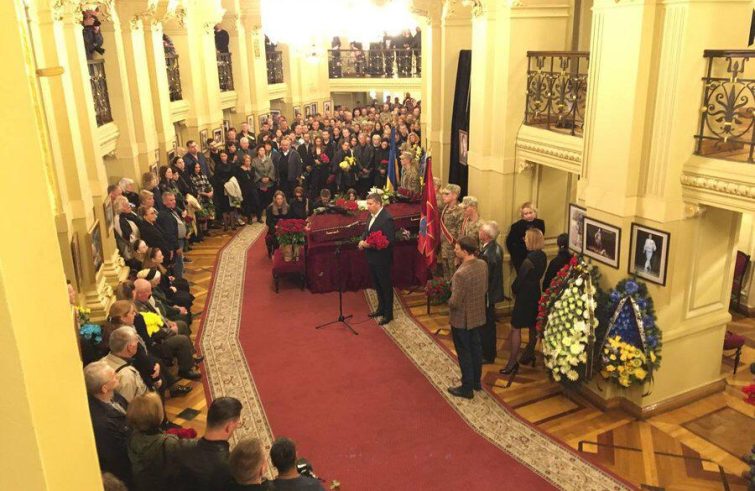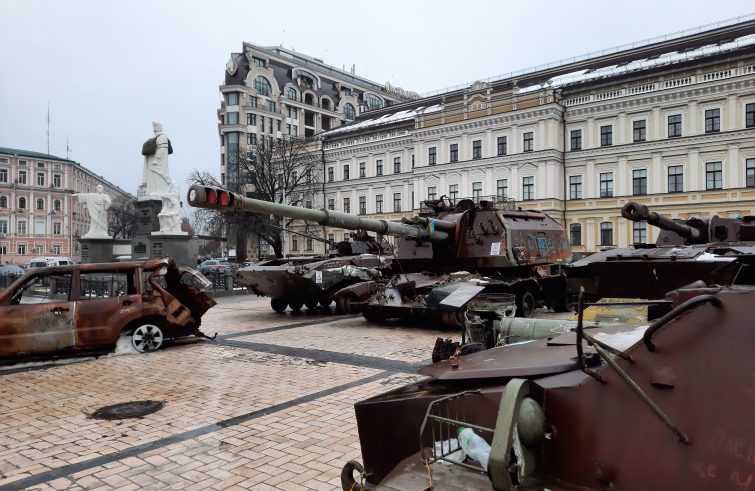
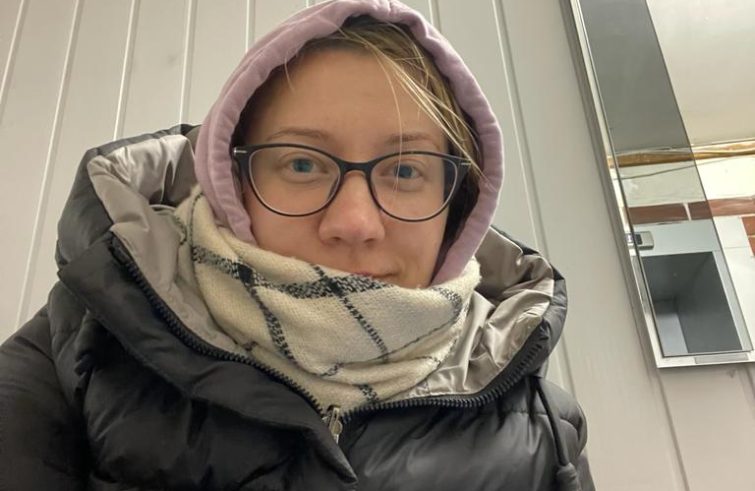 (from Kyiv) Information arrives via Telegram. Emergency alert apps, channels such as ‘Oficiinyi Radar’ or ‘Kyiv Info’, provide real-time updates on drone and missile strikes. Depending on where they are launched from, users can figure out what to do and where to go. Rockets are the most feared attacks: they hit suddenly, and only after they have been fired do the alarms go off. People talk about this among their friends and colleagues. Olga, a 36-year-old Caritas-Spes volunteer, shows us all the channels on her mobile phone and explains how the system works. “I live on the 14th floor,” she says, “and it’s important for me to know if I should stay at home or go down to the first floor. “On 25 November, the day of the most massive attack on Kyiv, the explosions caused the window panes to rattle loudly. “Everything trembled, the walls, the mirrors. We ran down to the first floor, where it was safer.” But the Shahed drone attacks are continuing. Every day. Several Russian drones struck the Ukrainian capital again tonight, with two attacks on western Kharkiv. Nine people were wounded in the shelling of Kherson in southern Ukraine, Ukrainian authorities said. “At home,” Olga said, “the safest place is the restroom. Whenever I hear the sound of explosions, my heart starts beating fast, and then it’s difficult to go back to sleep.” It’s a constant state of alarm. Somehow, the residents of Kyiv have gotten used to it. Some people keep a backpack ready with documents and important items in case of an emergency. “We are aware that we could lose everything from one moment to the next,” she says. “Our family, our home, our lives. But that makes us want to live every moment to the full, to be happy with what we have, even the smallest things, and to appreciate what we used to take for granted.” “It’s better to stay here than to follow the news online,” says Olga, when asked if she has ever considered leaving.
(from Kyiv) Information arrives via Telegram. Emergency alert apps, channels such as ‘Oficiinyi Radar’ or ‘Kyiv Info’, provide real-time updates on drone and missile strikes. Depending on where they are launched from, users can figure out what to do and where to go. Rockets are the most feared attacks: they hit suddenly, and only after they have been fired do the alarms go off. People talk about this among their friends and colleagues. Olga, a 36-year-old Caritas-Spes volunteer, shows us all the channels on her mobile phone and explains how the system works. “I live on the 14th floor,” she says, “and it’s important for me to know if I should stay at home or go down to the first floor. “On 25 November, the day of the most massive attack on Kyiv, the explosions caused the window panes to rattle loudly. “Everything trembled, the walls, the mirrors. We ran down to the first floor, where it was safer.” But the Shahed drone attacks are continuing. Every day. Several Russian drones struck the Ukrainian capital again tonight, with two attacks on western Kharkiv. Nine people were wounded in the shelling of Kherson in southern Ukraine, Ukrainian authorities said. “At home,” Olga said, “the safest place is the restroom. Whenever I hear the sound of explosions, my heart starts beating fast, and then it’s difficult to go back to sleep.” It’s a constant state of alarm. Somehow, the residents of Kyiv have gotten used to it. Some people keep a backpack ready with documents and important items in case of an emergency. “We are aware that we could lose everything from one moment to the next,” she says. “Our family, our home, our lives. But that makes us want to live every moment to the full, to be happy with what we have, even the smallest things, and to appreciate what we used to take for granted.” “It’s better to stay here than to follow the news online,” says Olga, when asked if she has ever considered leaving.
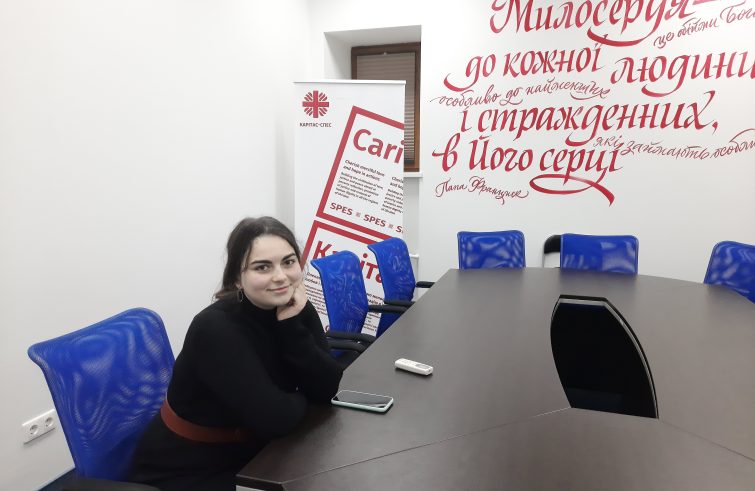 24-year-old Anna studied law at the University of Mariupol. “It used to be a beautiful, modern and highly developed city. Here too, the war has left a trail of death and destruction. All of Anna’s friends have left the city. One of her friends from school died along with his family under the rubble of their house. Some of her friends are fighting at the front. In a nutshell, the war has shattered the lives of these people. “I never think about the way in which my life has changed or what it would have been like had we not been in this situation. These are useless thoughts. They lead nowhere,” she says. “It will take me a long time to heal from the trauma of the war and to process my personal feelings and emotions. But right now my thoughts are focused on living my life today, with the knowledge that tomorrow I may no longer be able to do so.”
24-year-old Anna studied law at the University of Mariupol. “It used to be a beautiful, modern and highly developed city. Here too, the war has left a trail of death and destruction. All of Anna’s friends have left the city. One of her friends from school died along with his family under the rubble of their house. Some of her friends are fighting at the front. In a nutshell, the war has shattered the lives of these people. “I never think about the way in which my life has changed or what it would have been like had we not been in this situation. These are useless thoughts. They lead nowhere,” she says. “It will take me a long time to heal from the trauma of the war and to process my personal feelings and emotions. But right now my thoughts are focused on living my life today, with the knowledge that tomorrow I may no longer be able to do so.”
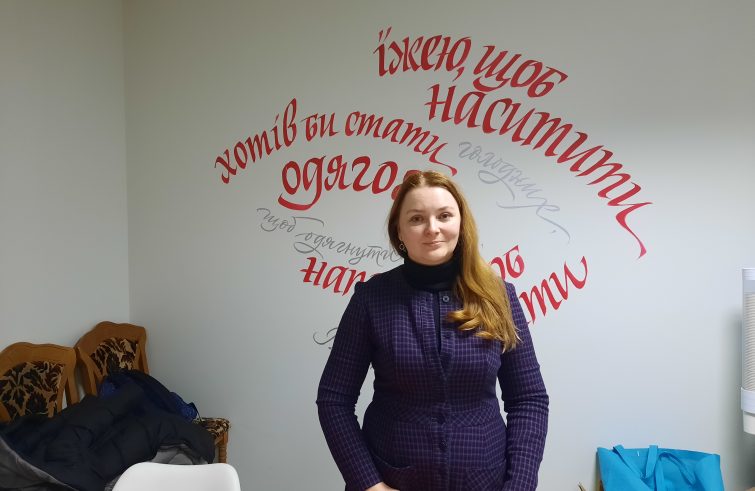 Tetiana Shapoval is the sister of Oleksandr Shapoval, a principal dancer with the Ukrainian National Opera, where he performed for 28 seasons. He had joined the ranks of the Kyiv Territorial Defence Unit from the first days of the large-scale Russian invasion. He then joined the Ukrainian Armed Forces. On 12 September 2022, Shapoval was killed in action near Mayorsk in the Donetsk region. He is survived by his wife and two children. His funeral was held at the Kyiv Opera House with full honours. “This grief,” Tetiana says today, “is an open wound that will never heal. People die every day in Ukraine. Our best men and young people have gone to fight on the front line, the generation that could rebuild our country.” “If you ask me if I am ready to forgive, my answer is no, I will never forgive them. They must first ask for my forgiveness, and this wound will take time to heal. But I have no feelings of hatred,” said Tetiana, “God has given me so much love that I have no feelings of hatred today. I know that those who killed my brother had no choice. They were trained in a culture and a system of totalitarianism that leaves no room for freedom. So it is not hate that I feel. Instead, I feel deep sadness for these people.”
Tetiana Shapoval is the sister of Oleksandr Shapoval, a principal dancer with the Ukrainian National Opera, where he performed for 28 seasons. He had joined the ranks of the Kyiv Territorial Defence Unit from the first days of the large-scale Russian invasion. He then joined the Ukrainian Armed Forces. On 12 September 2022, Shapoval was killed in action near Mayorsk in the Donetsk region. He is survived by his wife and two children. His funeral was held at the Kyiv Opera House with full honours. “This grief,” Tetiana says today, “is an open wound that will never heal. People die every day in Ukraine. Our best men and young people have gone to fight on the front line, the generation that could rebuild our country.” “If you ask me if I am ready to forgive, my answer is no, I will never forgive them. They must first ask for my forgiveness, and this wound will take time to heal. But I have no feelings of hatred,” said Tetiana, “God has given me so much love that I have no feelings of hatred today. I know that those who killed my brother had no choice. They were trained in a culture and a system of totalitarianism that leaves no room for freedom. So it is not hate that I feel. Instead, I feel deep sadness for these people.”

